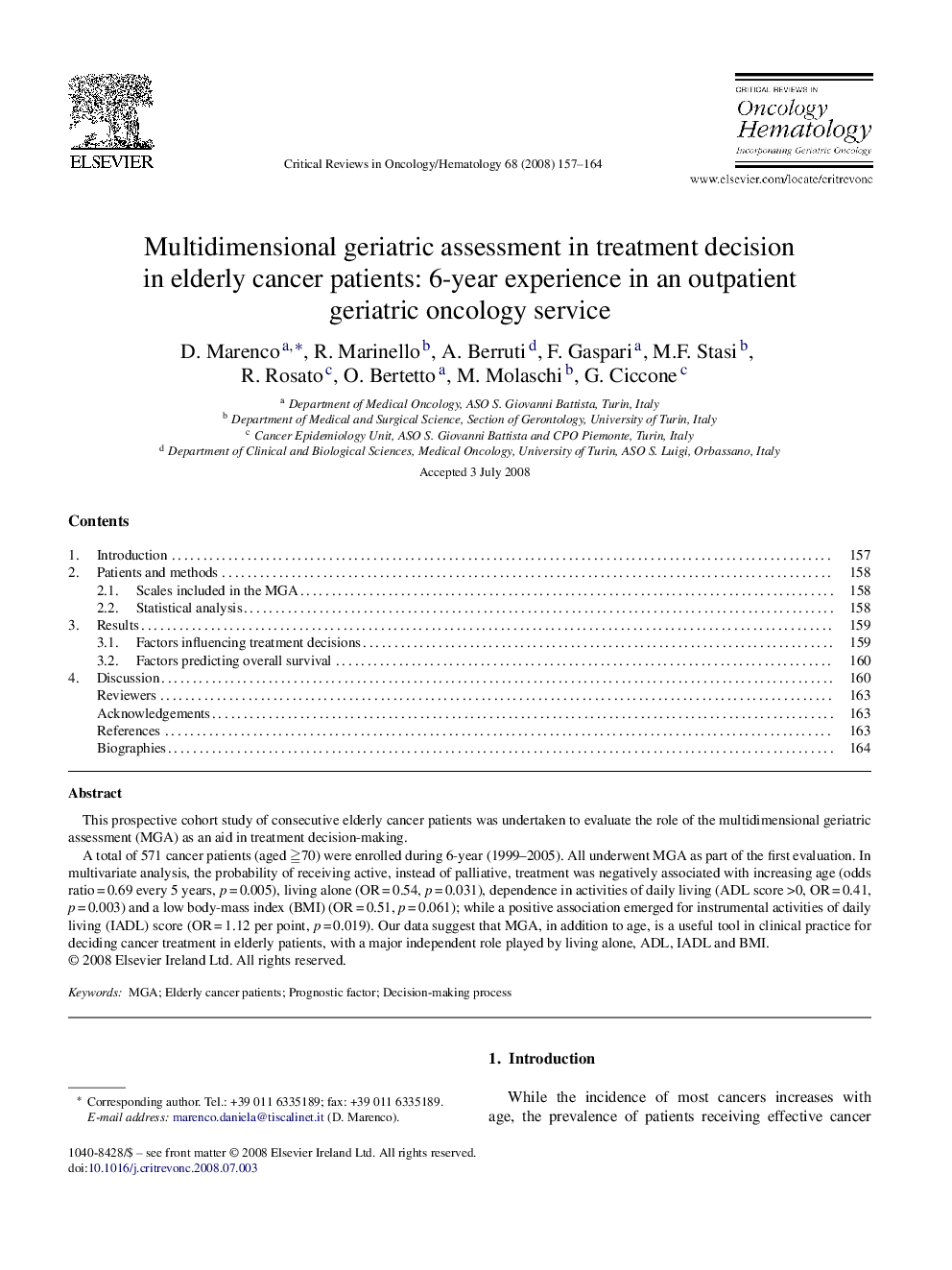| کد مقاله | کد نشریه | سال انتشار | مقاله انگلیسی | نسخه تمام متن |
|---|---|---|---|---|
| 3329931 | 1212425 | 2008 | 8 صفحه PDF | دانلود رایگان |

This prospective cohort study of consecutive elderly cancer patients was undertaken to evaluate the role of the multidimensional geriatric assessment (MGA) as an aid in treatment decision-making.A total of 571 cancer patients (aged ≧70) were enrolled during 6-year (1999–2005). All underwent MGA as part of the first evaluation. In multivariate analysis, the probability of receiving active, instead of palliative, treatment was negatively associated with increasing age (odds ratio = 0.69 every 5 years, p = 0.005), living alone (OR = 0.54, p = 0.031), dependence in activities of daily living (ADL score >0, OR = 0.41, p = 0.003) and a low body-mass index (BMI) (OR = 0.51, p = 0.061); while a positive association emerged for instrumental activities of daily living (IADL) score (OR = 1.12 per point, p = 0.019). Our data suggest that MGA, in addition to age, is a useful tool in clinical practice for deciding cancer treatment in elderly patients, with a major independent role played by living alone, ADL, IADL and BMI.
Journal: Critical Reviews in Oncology/Hematology - Volume 68, Issue 2, November 2008, Pages 157–164